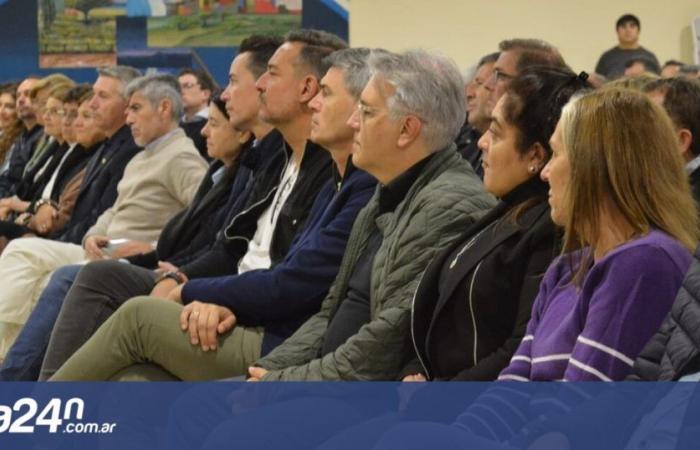Cardinal Ángel Rossi, recently appointed Archbishop of Córdoba, asked the political leadership to “put the person at the center of politics and policies”, and not the market, in what can be interpreted as a “lowering” of the discourse policy of Pope Francis and a questioning of the political bias that the bulk of the leadership seems to adopt
The archbishop built the stage from which to give this message: he summoned 80 leaders, references and provincial and municipal political authorities to reflect on the “value of politics as a vocation, service, dialogue and hope”; a meeting that took place at the Gabriel Taborín School, in which territorial representatives of the Archdiocese of Córdoba also participated.
And in the front row he sat none other than Governor Martín Llaryora and flanked him with the, at least for now, most notable opposition leaders: Luis Juez (PRO) and Rodrigo de Loredo (UCR).
The message
Based on Pope Francis’ encyclical Fratelli Tutti (“We are all brothers”), Rossi said: “We need the best policy at the service of the true common good; It is necessary and urgent to put the person, the specific people, at the center of politics and policies. “It should not be ideologies, nor particular interests, nor the market, nor anything like that that should be the first thing that politics should contemplate: the good of the people comes first.”
The truth is that in a Córdoba panorama, in which all these first-rate leaders seek shelter in the shadow of President Milei, the church’s criticism cannot but be read as an indirect shot, of national scope.
Rossi is not an explicit critic of Milei, but this message is a clear sign of the concern over the depth of the social crisis generated in these first months of administration.
The cardinal also stated: “You can show empathy without it implying weakness. You can negotiate clearly and without aggressiveness. You can work with compassion as well as tenacity. You can be strong and kind. Perhaps the challenge is to put people back at the center of policies, and believe that popularity and leadership can still be based on virtues, that there are still compassionate role models and that, perhaps, there is still hope and commitment in the future. political office. Let’s not settle for less.”
“We have become accustomed to efforts directed more towards the habit of quickly disqualifying the adversary, applying humiliating epithets, instead of facing an open and respectful dialogue, where we seek to achieve an overcoming synthesis,” said Rossi when echoing the concepts expressed by Bergoglio. .
At the meeting, in addition to the aforementioned references, were present, among others, the mayor Daniel Passerini, the provincial ministers Liliana Montero, Natalia Quiñonez, Paulo Cassinerio, Juan Pablo Quinteros and Claudia Martínez; the Chief of Police, Leonardo Gutiérrez; Senator Carmen Álvarez; the national deputies Oscar Agost Carreño, Gabriel Bornoroni, Juan Fernando Brügge, Soledad Carrizo, Gabriela Estévez, María Cecilia Ibáñez, Luis Picat, and Laura Rodríguez Machado; and the provincial legislators Daniel Juez, Miguel Siciliano, Juan Pablo Peirone.






